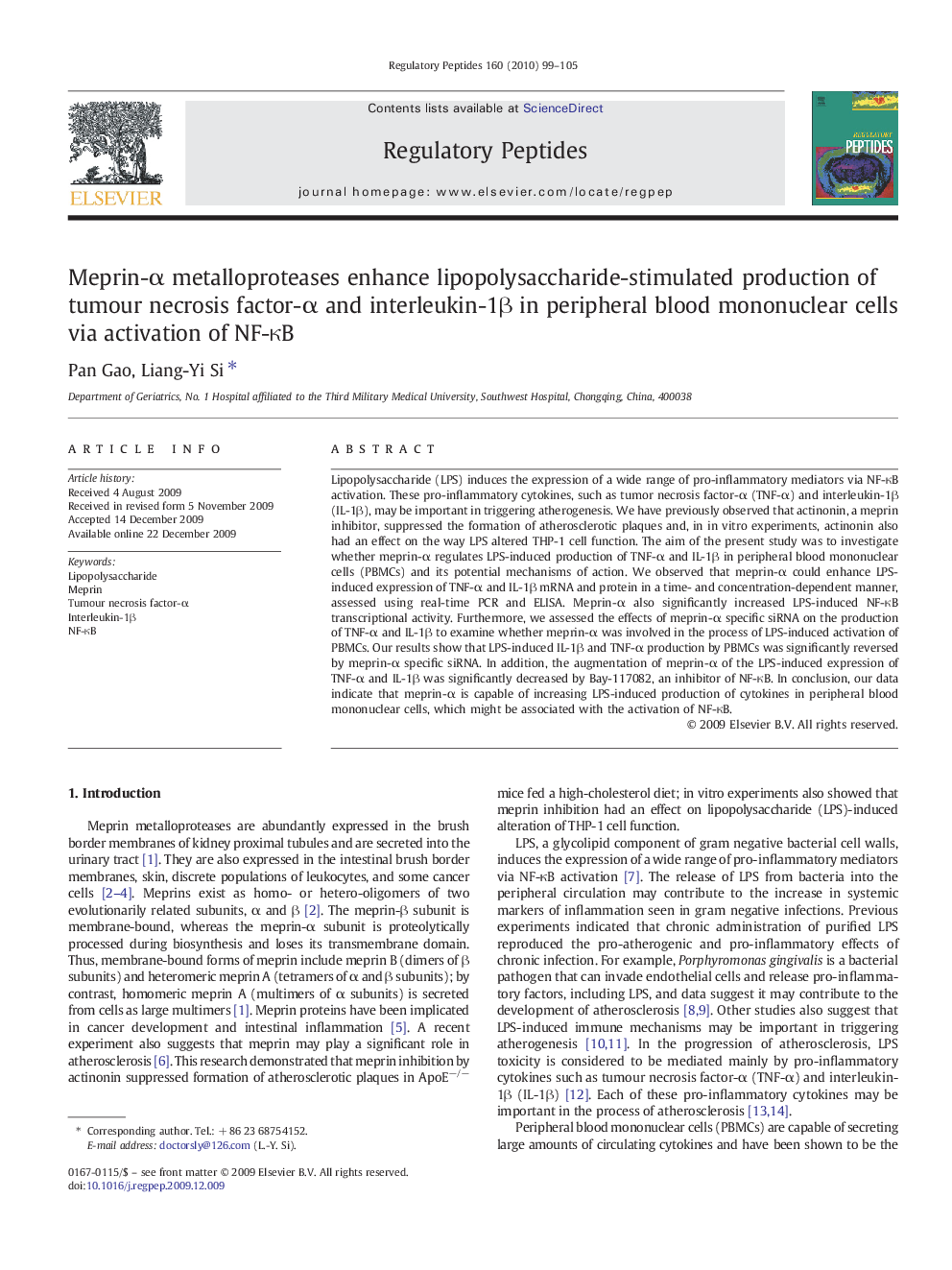| Article ID | Journal | Published Year | Pages | File Type |
|---|---|---|---|---|
| 2022883 | Regulatory Peptides | 2010 | 7 Pages |
Lipopolysaccharide (LPS) induces the expression of a wide range of pro-inflammatory mediators via NF-κB activation. These pro-inflammatory cytokines, such as tumor necrosis factor-α (TNF-α) and interleukin-1β (IL-1β), may be important in triggering atherogenesis. We have previously observed that actinonin, a meprin inhibitor, suppressed the formation of atherosclerotic plaques and, in in vitro experiments, actinonin also had an effect on the way LPS altered THP-1 cell function. The aim of the present study was to investigate whether meprin-α regulates LPS-induced production of TNF-α and IL-1β in peripheral blood mononuclear cells (PBMCs) and its potential mechanisms of action. We observed that meprin-α could enhance LPS-induced expression of TNF-α and IL-1β mRNA and protein in a time- and concentration-dependent manner, assessed using real-time PCR and ELISA. Meprin-α also significantly increased LPS-induced NF-κB transcriptional activity. Furthermore, we assessed the effects of meprin-α specific siRNA on the production of TNF-α and IL-1β to examine whether meprin-α was involved in the process of LPS-induced activation of PBMCs. Our results show that LPS-induced IL-1β and TNF-α production by PBMCs was significantly reversed by meprin-α specific siRNA. In addition, the augmentation of meprin-α of the LPS-induced expression of TNF-α and IL-1β was significantly decreased by Bay-117082, an inhibitor of NF-κB. In conclusion, our data indicate that meprin-α is capable of increasing LPS-induced production of cytokines in peripheral blood mononuclear cells, which might be associated with the activation of NF-κB.
